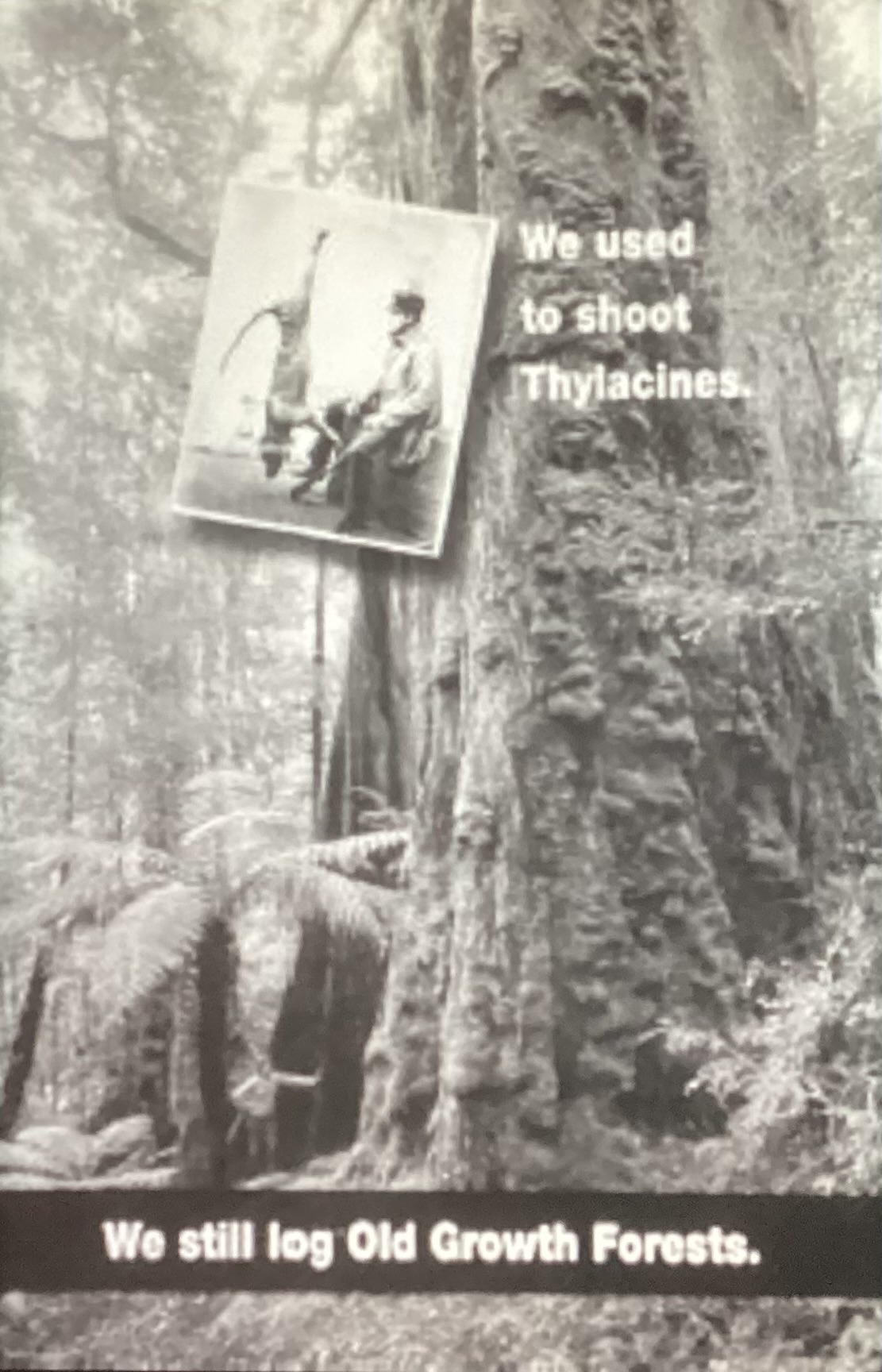
David Owen, Old Growth Forrests
This is a photo used by the Tasmanian Community Alliance, during a state election to gather support for their conservation efforts. It demonstrates what an impact the thylacine had by using it as an example of what not to do.

